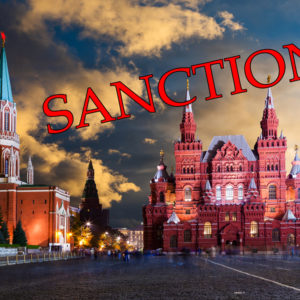It has been two decades since we had Ukrainian guests in our home. My wife and I hosted many former Soviet Union guests as part of a State Department program to enhance understanding and nation building. Russia’s invasion of Ukraine has brought those visitors to mind.
Our impression was that our visitors from Russia and Ukraine were like us — White, with a history of Christianity. Their clothes may have been different styles, but most were educated, cordial and sought similar life goals. We had no hesitation in having them stay in our home for several weeks while they met with business counterparts during the day. Our dinner conversations flowed easily and were interesting. We saw no barriers to having them as friends.
The dominant themes were concern about employment, family and their children’s future. Our curiosity about politics was evident but no more prevalent than discussing the simple navigation of the trials and inconveniences of life.
Ukrainians were among many visitors from the former Soviet Union. Most of our guests have morphed into a sameness in our memories, except for one notable feature. Each non-Russian adamantly wished to differentiate their country from the former Soviet Union. Home loyalty was local and robust, whether in Ukraine, Georgia, Azerbaijan and other countries. Confusing them with Russians was met with a vigorous negative response.
We have lost contact with our Ukrainian friends, but they are in our hearts. We hope they remember us, the stories, laughter and food we shared. We hope, too, they recall our decency and the principles we shared as Americans who believed in freedom and the rights of all people.
Our Russian guests are also out of contact. We hope they, too, recall our belief in freedom and the rights of all people. We hope these memories deflect the lies and propaganda they are most likely to hear and that they will share with others what they saw face to face when they were with us.
We believe this is Vladimir Putin’s war, not the war of all Russian people. No doubt there are significant numbers (probably an overwhelming majority at this time) who have bought into Putin’s lies, and we must temporarily consider those who act aggressively our enemies. In a sense, they, too, are victims.
Yet, it is often hard to hold opposing thoughts. One thought is to believe that all Russians are our enemies since Russia invaded Ukraine. Alternatively, we can assume that under the leadership of Putin, Russians are both victims and aggressors. The latter view is more difficult to accept, but it is more accurate than viewing all Russians darkly.
It is difficult to separate a nation’s people from its leaders when at war. We hated the Germans during World War II (Krauts) and the Japanese (Japs), demonizing them in every way possible. More than 70 years later, we now visit their countries, admire their culture, and welcome their citizens as immigrants to the United States.
We understand the atrocities they committed were not inborn but resulted from vile, evil leaders who stood to dominate other countries for their benefit. They manipulated their citizens by suppressing information and distorted reality, the same traits evident in Putin.
Confronting aggression with strength is wise. But it is important not to become barbaric in our attitude against people who will, in time, be seen as humane once again.
There are reasons we are a member of the Geneva Conventions and their Additional Protocols. They commit us to standards of behavior that we aspire to meet. Our purpose is to strive toward the better angels of our nature and act humanely when faced with cruelty and barbarity. It is these intentions that it is hoped differentiate us from Vladimir Putin.
The idealized view of our country is civilized, fair and caring. An attitude separating Putin’s war from all Russian citizens is a worthy goal to move toward that ideal.

